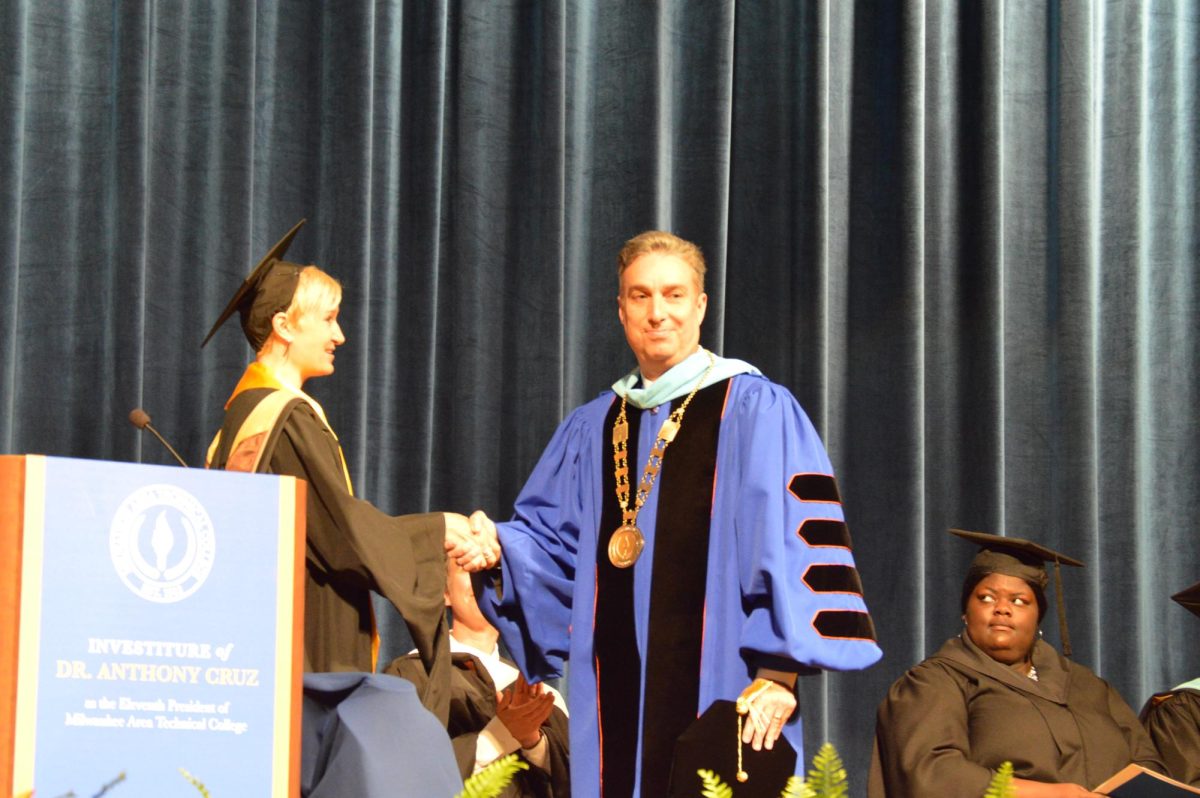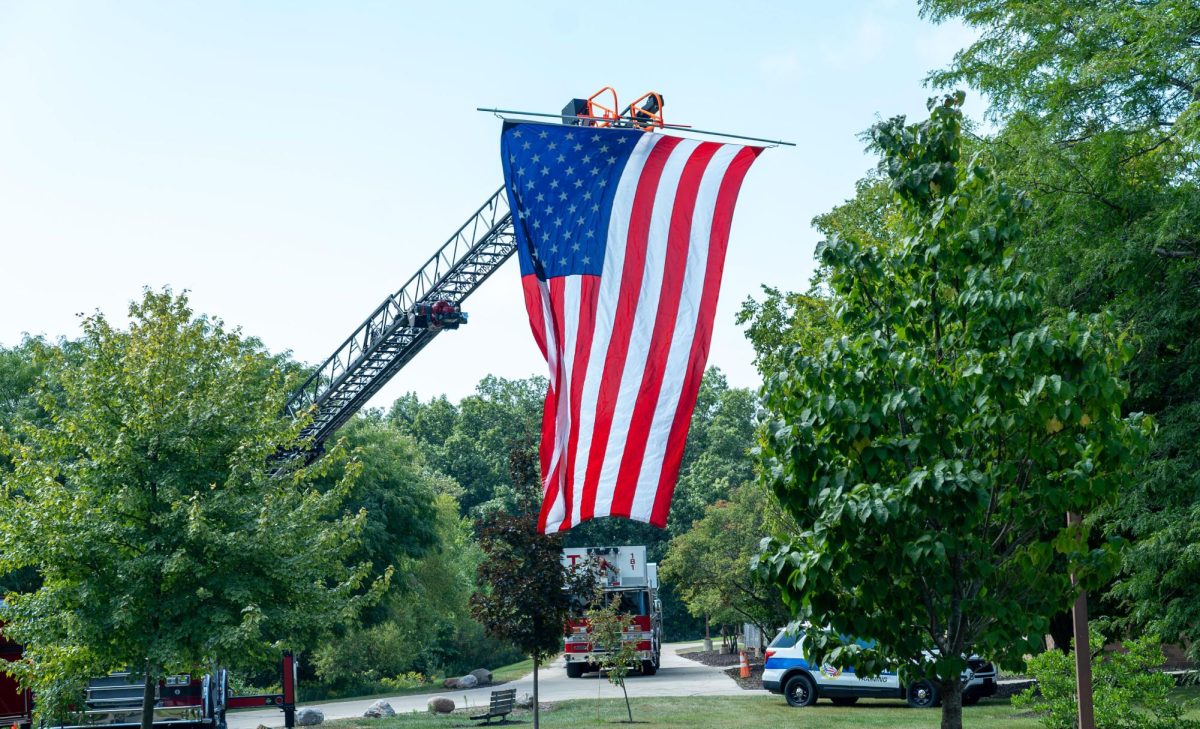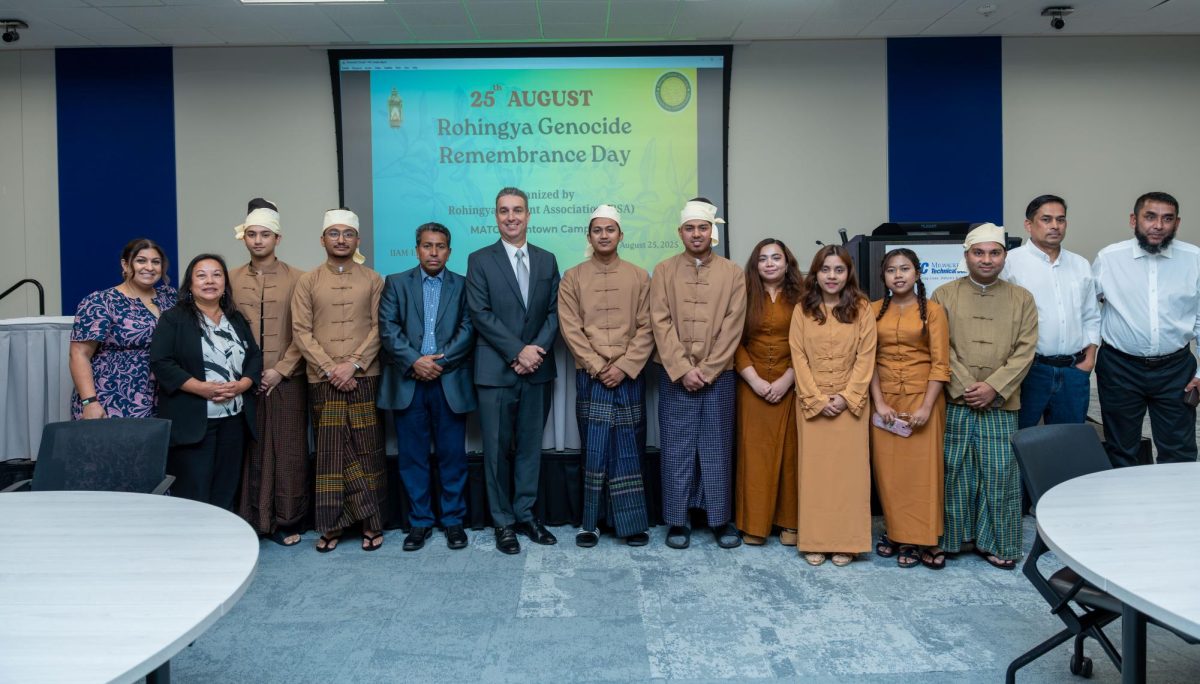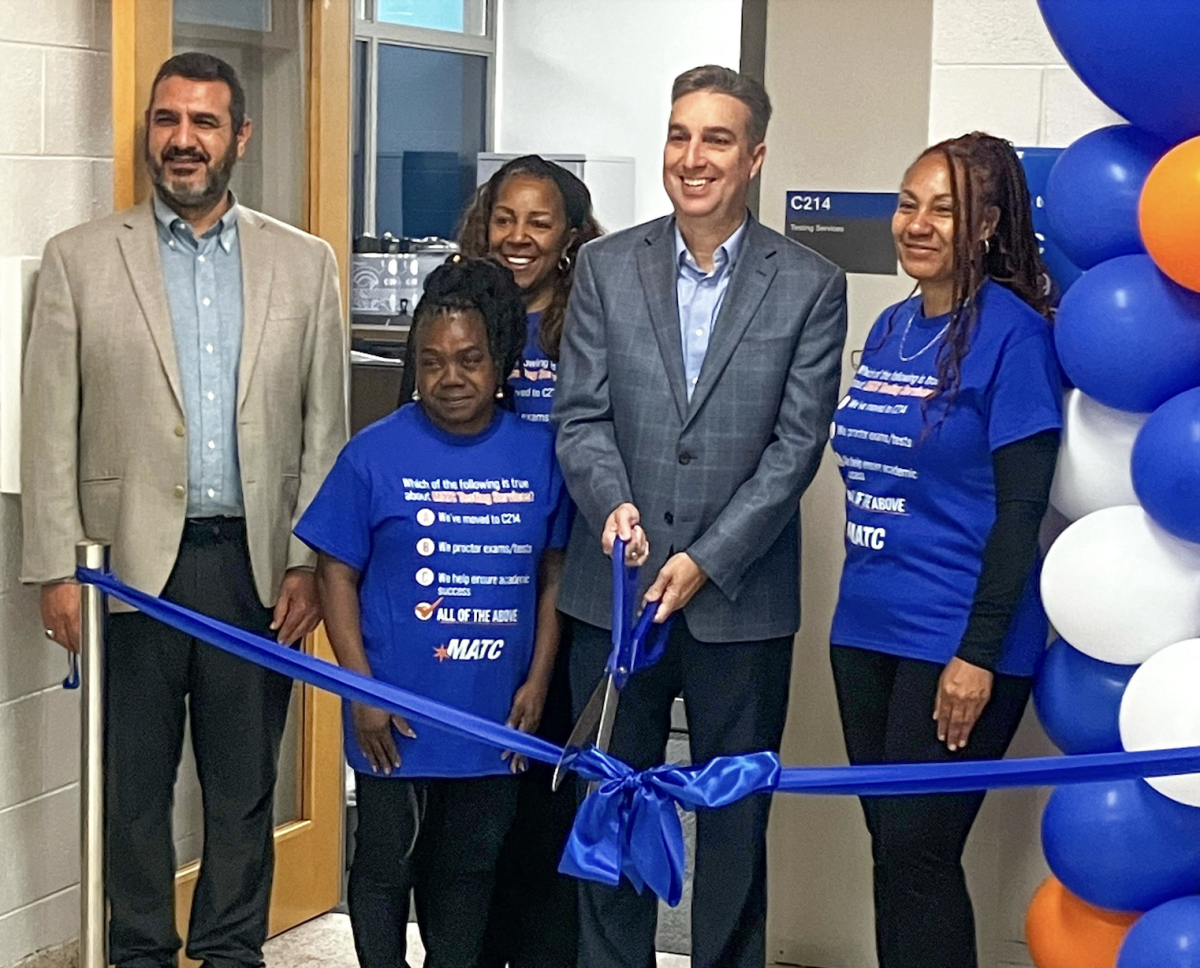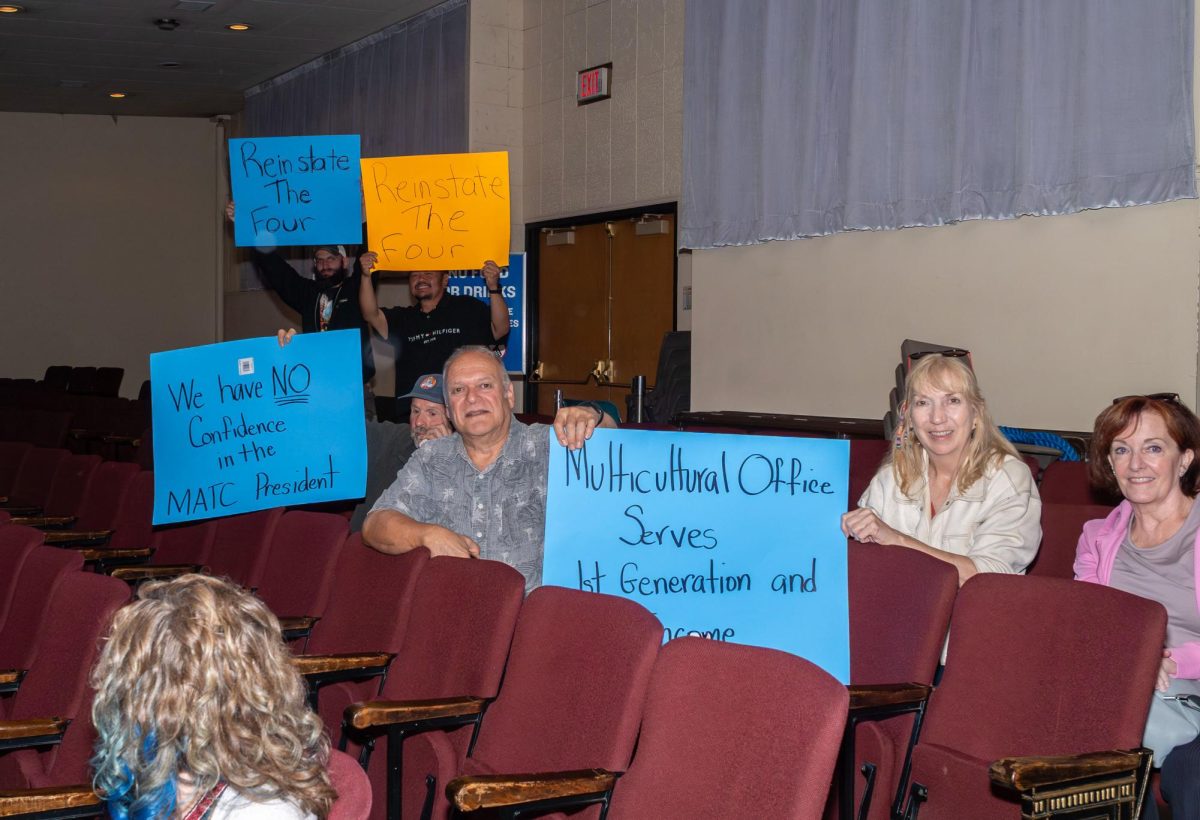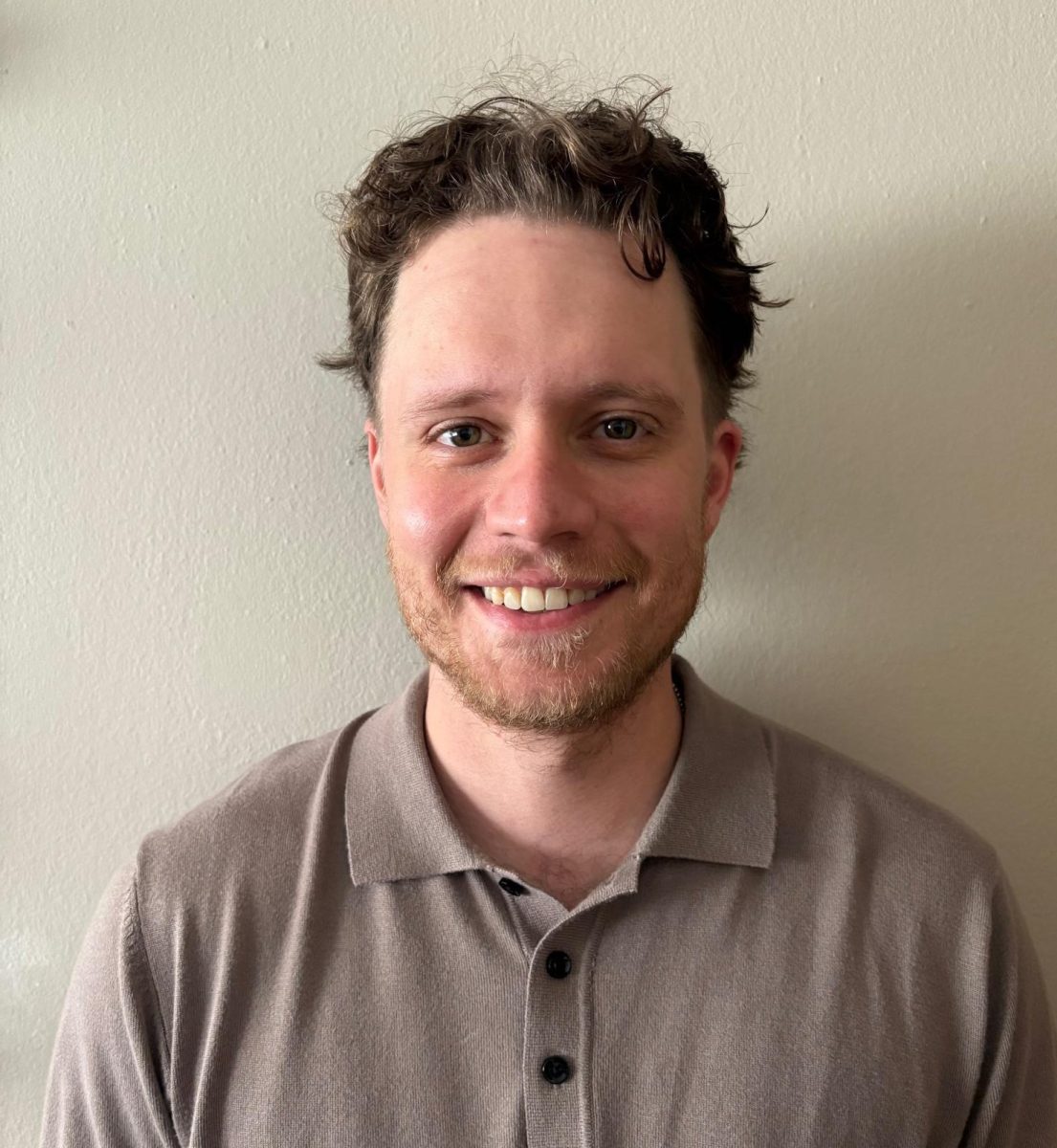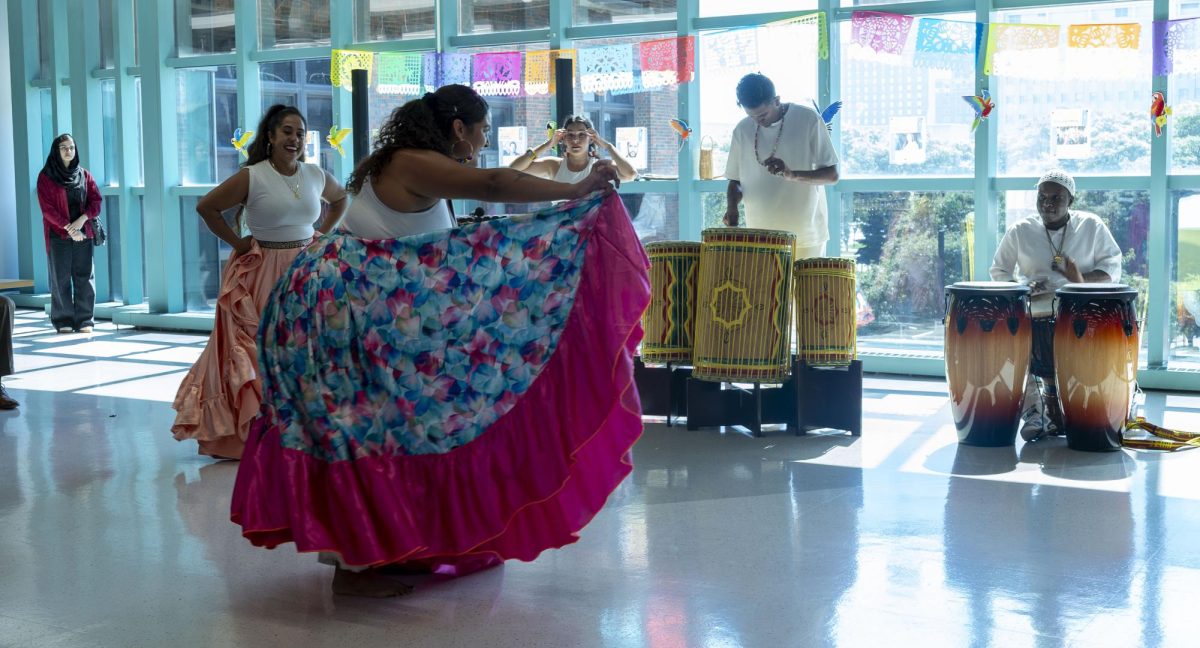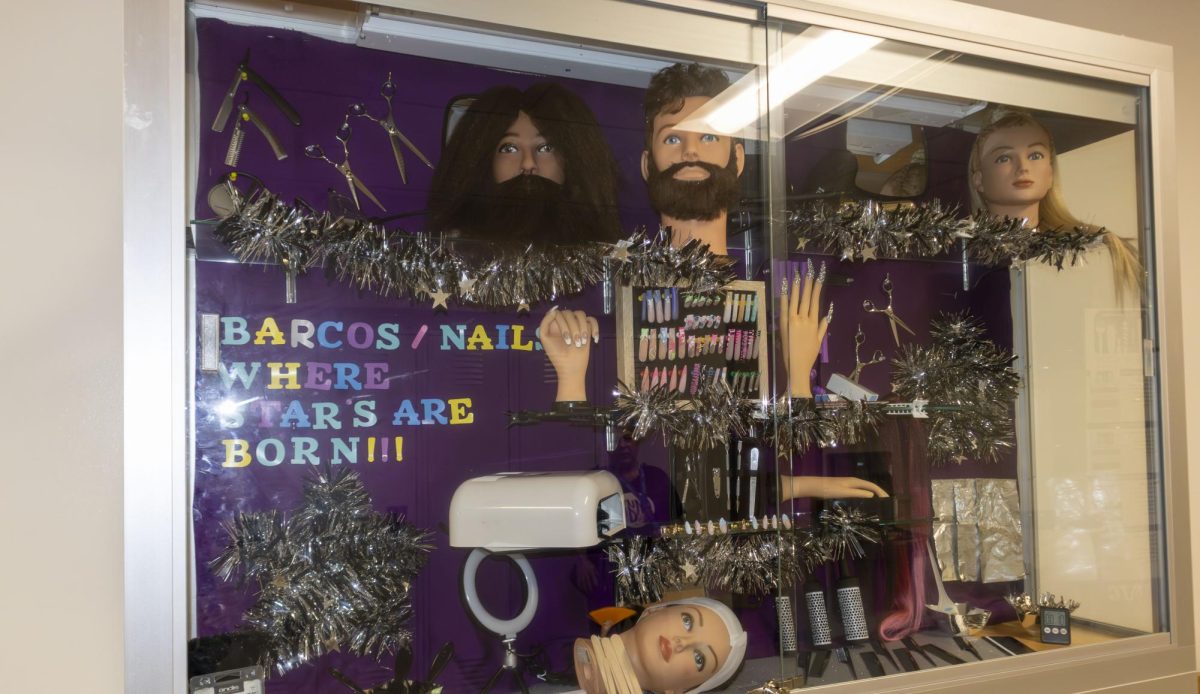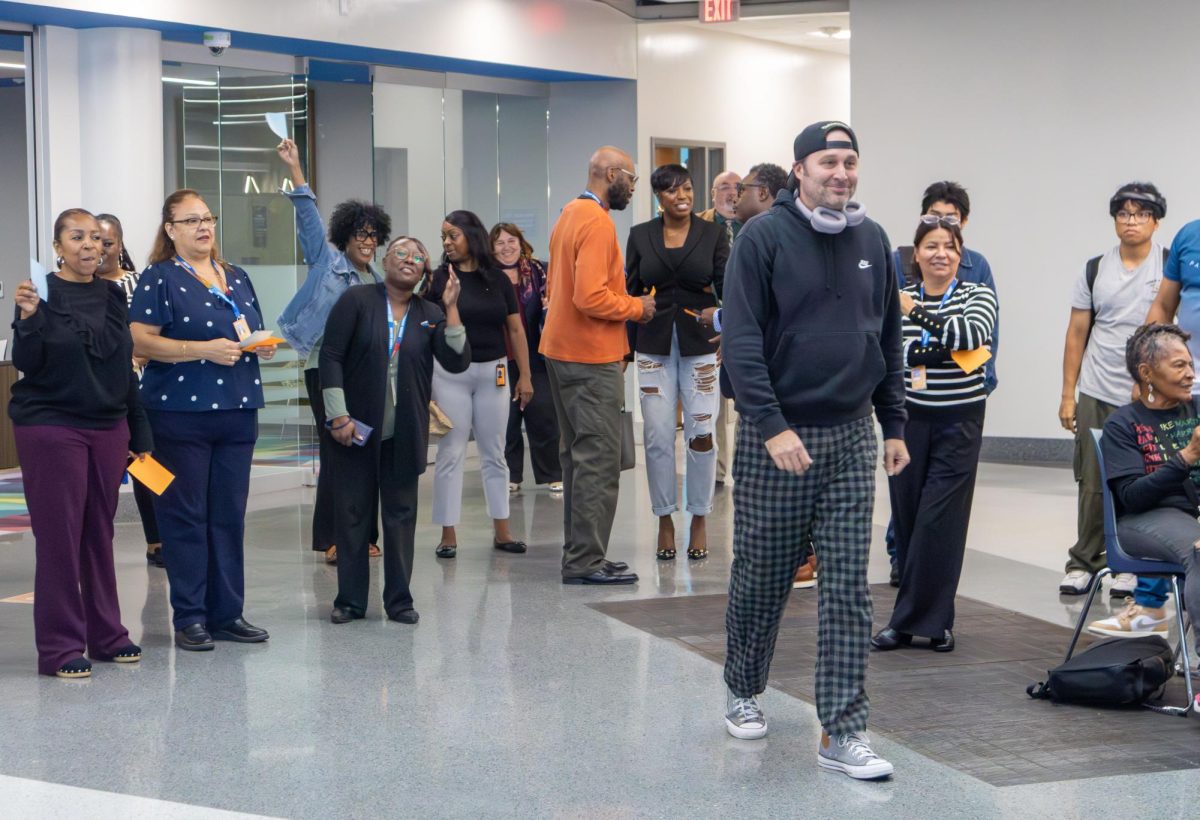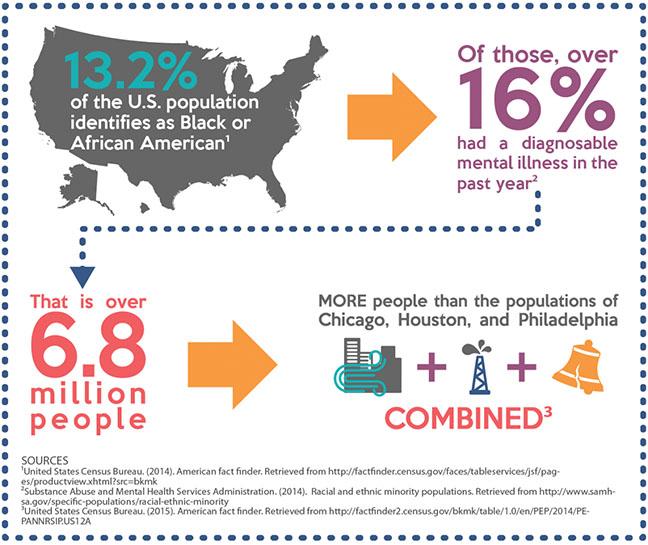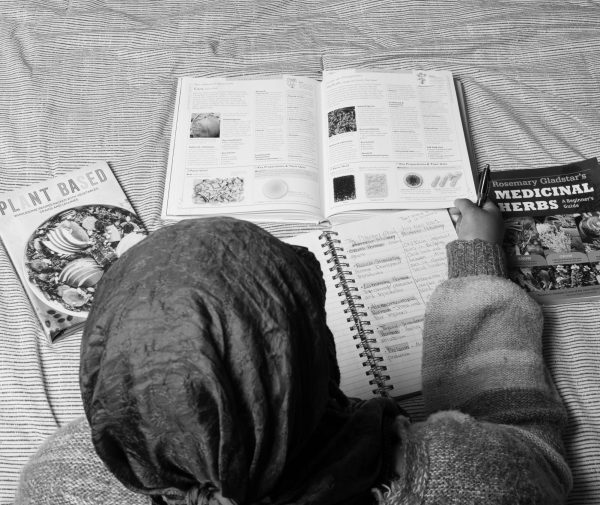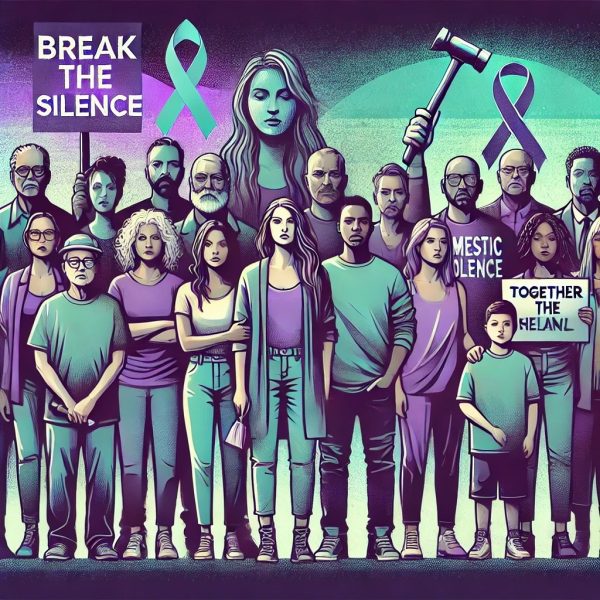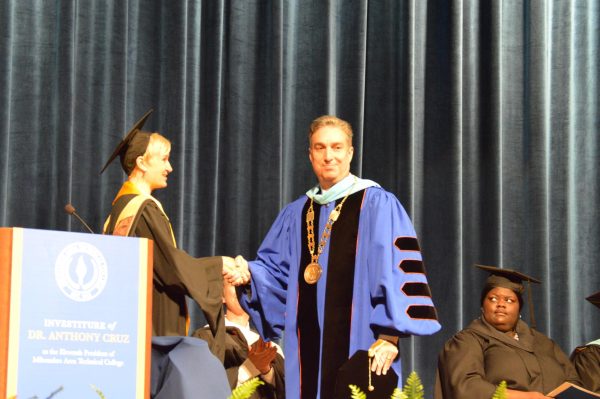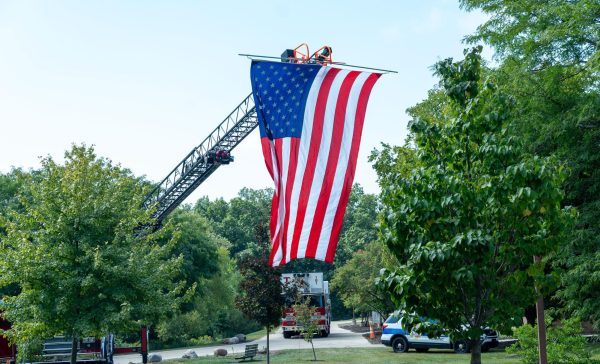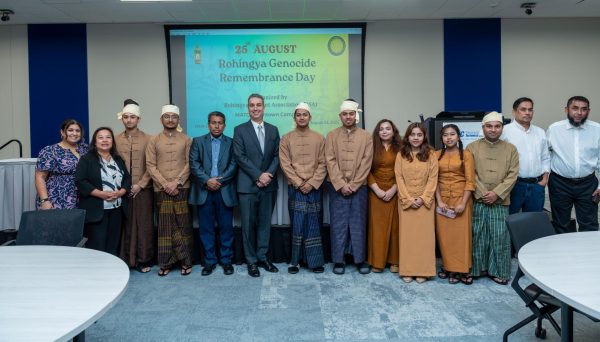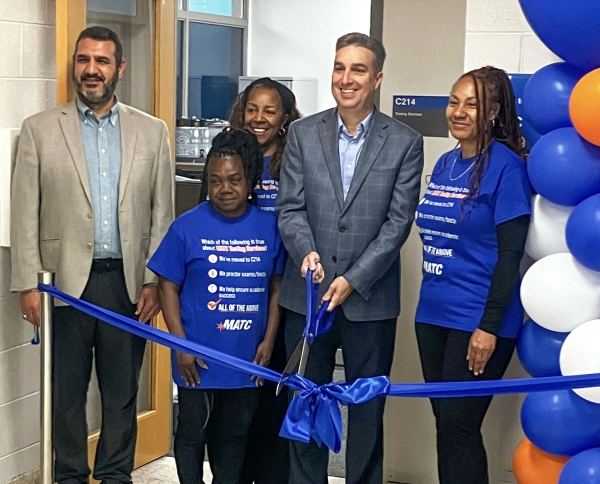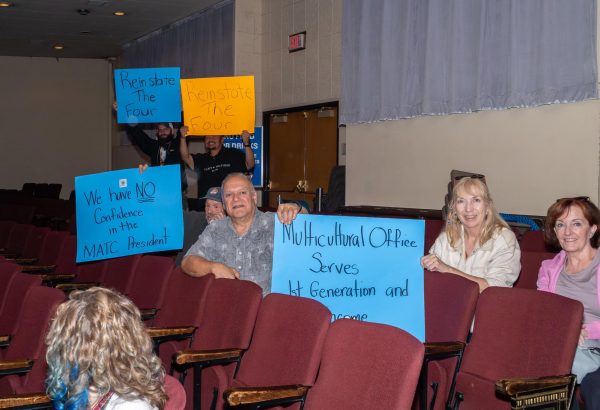Open forum explores mental health in black community
The Health and Human Services Office of Minority Health reports that black Americans are 20% more likely than other members of society to experience severe mental health issues such as depression, thoughts of suicide, and post-traumatic stress disorder.
On Feb. 16 Men of Color organization, in conjunction with the Office of Multicultural Affairs, hosted an open community discussion exploring the obstacles, opportunities, and stigma surrounding mental health in the black community.
Walter Lanier, MATC director of Multicultural Affairs and Community Engagement, moderated the panel discussion.
Lanier welcomed the audience, addressing the theme of the event by stating, “Certainly we could be talking about mental health in any community because mental health, mental illnesses are things that challenge all communities, raising awareness in all communities, decreasing stigma in all communities. Making it OK to talk about it in all communities is very critical.”
The panel featured Dr. Ramel Smith (Blaquesmith Psychological Consultative LLC), Annette Madison, (licensed clinical social worker), Jim Addison (program coordinator, Black Health Coalition) and Brenda Wesley (director of Education and Outreach, National Alliance for Mental Health).
The panelists’ professional background represented a wealth of knowledge and experience working on the front lines in the community as therapists, social workers, advocates and educators. Each of the panelists spoke to the theme of obstacles and opportunities in mental health in the black community.
Smith engaged the audience with a story of a man plagued with cobwebs of the mind, praying that they be removed from his head. The story of a mind clouded with cobwebs stood symbolic of the thoughts, feelings and memories that thread into the web of mental health issues. Smith concluded from the fable that, “What I find that the true spider is the trauma, that we all go through. Those are the things that we talk about, those childhood experiences that give us those difficult times that cause manifestations of other behaviors.” Smith offered that, “The best way we are going to stop that trauma is if we have the resilience.”
Often times the practice of avoiding the topic of mental health is embedded in many people’s cultural foundation of values, norms and mores. Annette Madison, LCSW added, “And if we’re going to make a difference, we are going to have to be cultural revolutionaries. We’re going to go get culture. Because culture says that I’m a strong black man, black woman and I can take anything. …Culture says what goes in my house, stays in my house.” In this cultural context, many people feel that seeking help or even admitting they may need intervention are viewed as weak and inadequate. Madison spoke to another obstacle communities of color experience in seeking “…a therapist who is culturally competent to be able to journey with me. Those are the things that are obstacles that I hear people say.”
Mental health is often a very vulnerable, frightening and uncomfortable topic for people from any background to come forward and speak about. Addison, finds that people shy away from the conversation because they find it very difficult to find people that they can really, really confide in. Not only about their mental health but also the mental health care they are receiving.
Addison also addressed the stigma and shame that stop people from feeling comfortable to seek help and participate in treatment. He stated that when dealing with persons with mental illnesses the issue is “we’re just judging them and can’t believe what they did wrong. We should stop asking them, ‘What’s wrong with you and ask them ‘What happened to you?’”
The panel addresses came to a dramatic climax when Wesley told the harrowing story of the personal journey her family experienced attempting to navigate the maze of the mental health system as an advocate for her son who suffers from mental illness. Wesley detailed the passion that willed her to walk away from a lucrative career as an advertising executive and find invaluable purpose in fighting for education, advocacy and innovation in the mental health system.
Wesley’s plea to the audience, “We have to change our mindset on therapy and mental health. We have stigmas and that’s one of the reasons why people don’t seek services – whether it was a man, woman or child or whatever. … But in our society, mental illness is the last frontier that we can openly and honestly make fun of people and not be ashamed of our actions.”
The productive discussion concluded with an audience- engineered question and answer session on topics ranging from the looming mental health complex privatization to questions on trust, access and advocacy. The panelists did offer many resources to the attendees such as seeking professional therapy, peer mentorship through the National Alliance for Mental Health’s Milwaukee office, and finding a mental health advocate.
Smith reminded the community members that not all mental health intervention needs to take place in the confines of professional therapists, psychiatrists and treatment facilities. Smith remarked, “For a child, if you put them in a place like Urban Underground or Running Rebels, these are places that have so many different people who care and have different resources for them. Think about sports organizations, think about musical lessons, think about places like Urban Underground, and Running Rebels. So when you think about clinical services in mental health, I want you to think outside the box.”
Lanier also informs students and the community about the support and resources at MATC for students, adding, “So [for] the students who are struggling with issues, challenges, frustration, rage, mental illnesses, diagnosis, depression, frustration… we have resources that are available…at each counseling and advising center, everyone has access to a licensed professional counselor that is there, that is available to assist you with your needs.”

